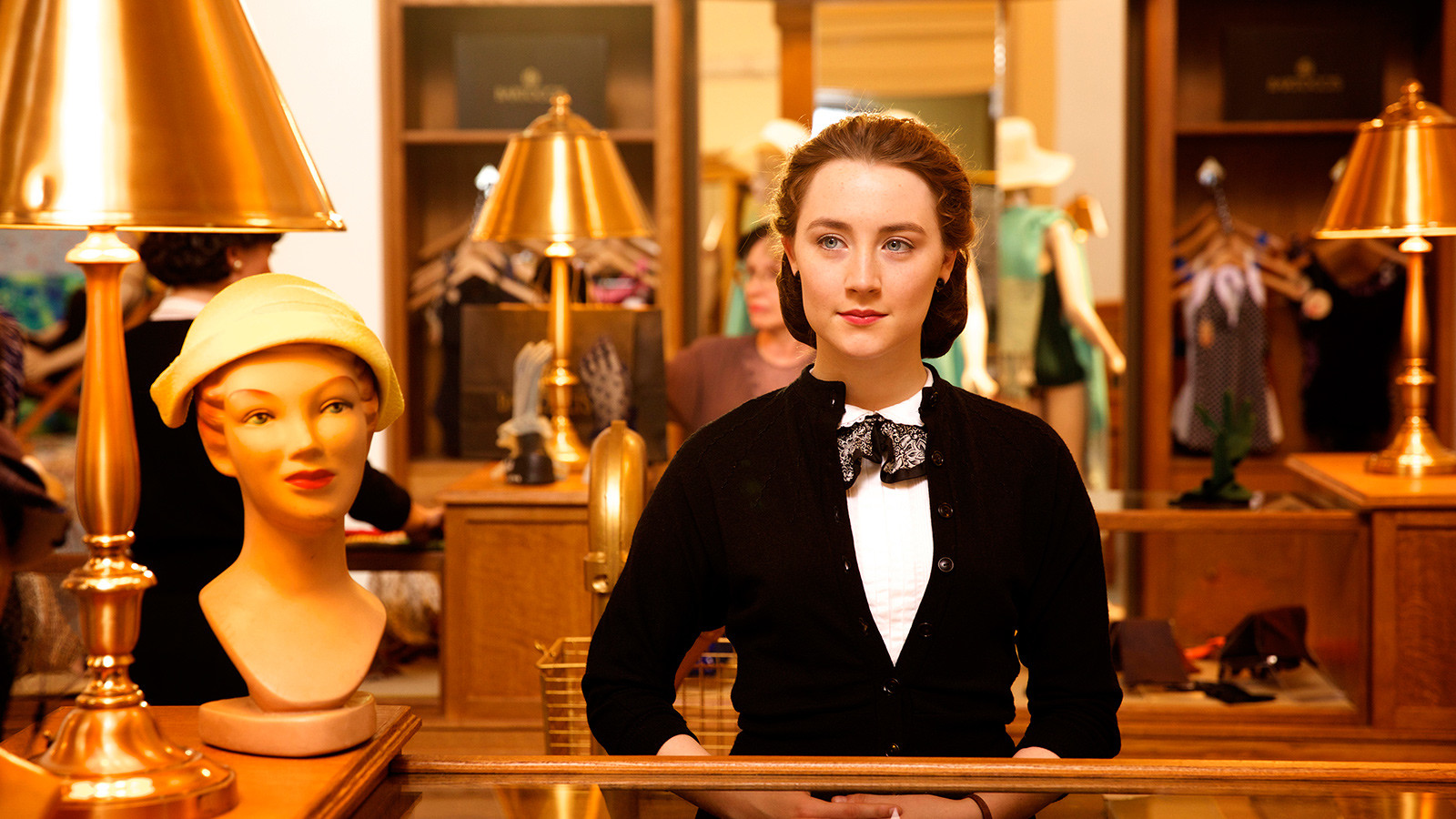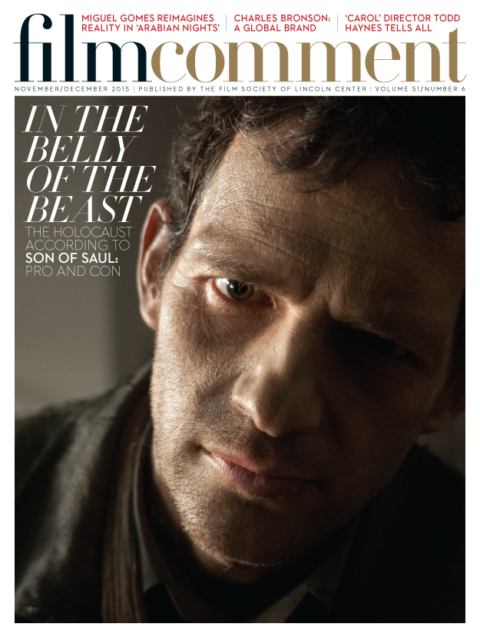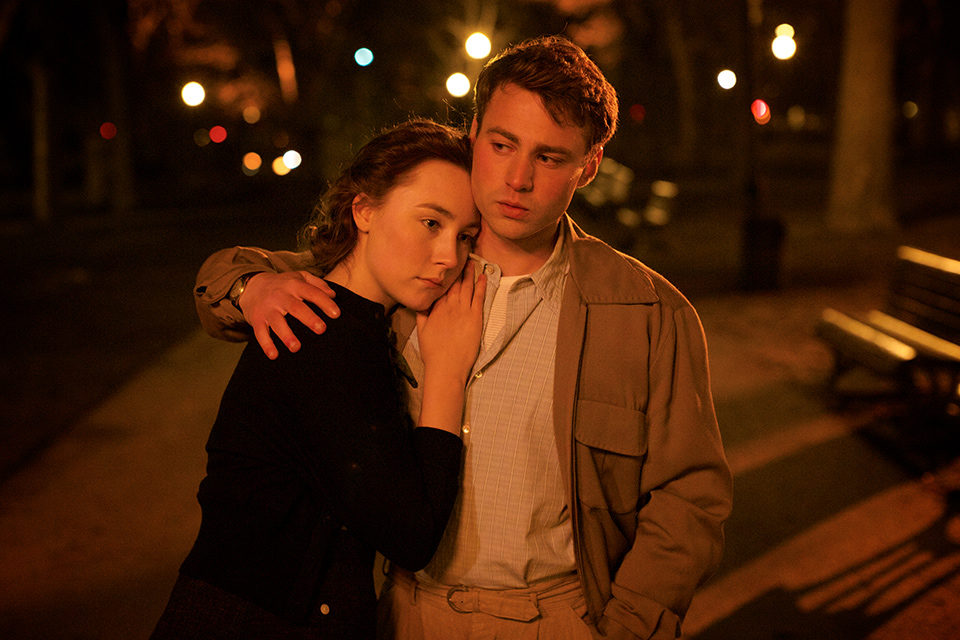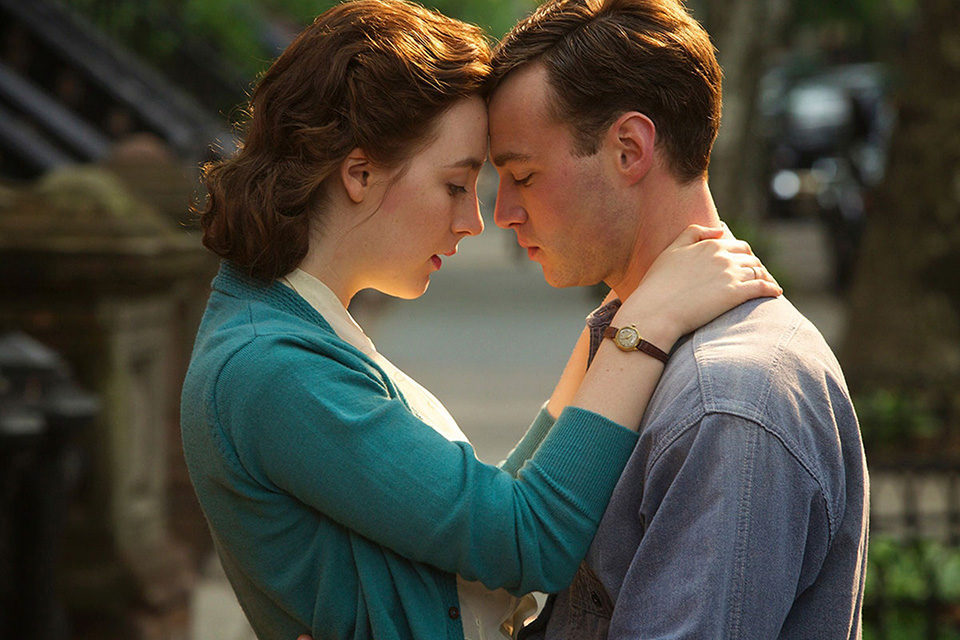
Review: Brooklyn
This calm, spellbinding movie is the rare literary adaptation that rewards a book’s fans with unexpected insights while taking on a vibrant life of its own. Make that two lives, or even three.

Reading Colm Tóibín’s masterly 2009 novel about an Irish girl’s immigration to Brooklyn in the Fifties is a profound yet straightforward experience. His reluctant heroine, Eilis Lacey, doesn’t realize that she’s going to waste in depressed, tradition- bound Enniscorthy until her older sister, Rose, sends her to America. Tóibín walks his readers right into the heart and mind of a conventional young woman.
The movie’s director, James Crowley, and its screenwriter, Nick Hornby, do something quietly daring and very different. Eschewing voiceover narration, they stay outside of the head of Eilis (Saoirse Ronan) as she becomes a changed person, and matures into someone else again. Crowley’s plangent images, Hornby’s nimble dialogue, Ronan’s uncanny ability to suggest inchoate feelings—together they convey Eilis’s shocks and sensations as she adapts to Eisenhower-era Brooklyn. But her core thoughts and feelings become more enigmatic and even more suggestive than they are in the book.

Brooklyn
These psychological mysteries intensify a viewer’s connection to Eilis. They make you study her more intimately as she navigates seasickness and then homesickness; the comedy-drama of boardinghouse life under the rule of funny, moralistic Mrs. Kehoe (Julie Walters); and the velvety tensions of a family-owned Brooklyn department store that demands top service from its sales force.
Most coming-of-age movies emphasize the continuity of their heroes as they come into their own. Eilis’s personality changes both subtly and radically. From being a small-town gal with a chip on her shoulder about the local upper crust, she evolves into a wary, deeply feeling woman who studies bookkeeping at night while dating a smitten Italian guy named Tony (Emory Cohen).
Eilis takes her most audacious leap when an unexpected calamity sends her back to Enniscorthy. Suddenly everyone treats her vastly better than they did before. She blossoms out of being a wallflower. Her newfound worldliness puts her in a position to exploit the best opportunities that the village has to offer.

Brooklyn
Unlike the book, the movie provides no immediate explanation for why she doesn’t tell anyone that she has married Tony, even after an eligible and lovable bachelor named Jim (Domhnall Gleeson) comes courting. So in its own wholesome, picturesque way (the Irish coast has never looked more enticing), Brooklyn acquires some of the ambiguous allure of gothic romance.
Eilis assumes large parts of her sister’s identity during her stay; she even takes over her accounting job. But the difference between Brooklyn and Vertigo or Phoenix is that in Ronan’s hypnotic shape-shifting performance, Eilis remodels herself. The movie conveys viscerally what Tóibín states outright: she could be “two people, one who had battled against two cold winters and many hard days in Brooklyn and fallen in love there, and the other who was her mother’s daughter, the Eilis whom everyone knew, or thought they knew.”
Paradoxically, by refusing to treat Eilis as an open book, the filmmakers keep their movie from becoming a one-woman show. It takes a village to dramatize the impact of a character as original as Eilis. Cohen’s Tony riffs beautifully on Brando’s gallant street courtship of Eva Marie Saint in On the Waterfront. Gleeson harks back to the sensitivity and charm of the young Jimmy Stewart. His passionate formality helps Ronan express the peculiar irony of Eilis’s homecoming. Brooklyn demonstrates that you can go home again—and sometimes arrive there as your better self.







